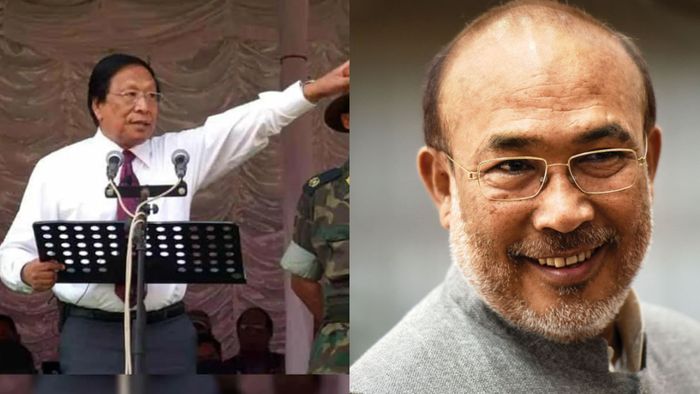Manipur: NSCN-IM reacts to Biren Singh's statement on Meitei-Tangkhul brotherhood
The NSCN-IM has issued a statement in response to Biren Singh's recent remarks on the Meitei-Tangkhul brotherhood, asserting that Singh's narrative is limited to the Hundung village in Manipur.

- Oct 23, 2023,
- Updated Oct 23, 2023, 4:45 PM IST
Amid the reports and heightened debates on social media about the Meitei-Tangkhul story, the NSCN-IM said that the “story is confined only to Hundung village”.
In a statement issued today, the NSCN-IM said, “History says that the Nagas, the Meiteis and the Kukis come from a common history. They are brothers of the Mongoloid family. This is common knowledge. With respect to the much talked about Tangkhul and Meitei brotherhood, history is very clear. The story is, however, confined only to Hundung village and does not apply to the whole Tangkhuls.”
The NSCN-IM also said history has it that one Tangkhul brother from Hundung village went down to the present Imphal valley and settled down there to live with the Meitei community. A story also says there are cases where some Tangkhuls and other Naga tribes who were married to Kuki women settled in their land and lived with the Kuki community, it added.
The NSCN-IM statement then pointed out that though one cannot undermine the blood relationship between the Hundung royal family and the Meiteis, one should not take it too far to give a wrong meaning. “We should understand that all Tangkhuls are not part of the Hungdung royal family. Hungdung was a big village in the Tangkhul community at that time. But that does not mean Hundung village represents the whole Tangkhuls. Therefore, the relationship is not about the Tangkhul and Meitei but the Hundung village royal family and few Meitei salais (clans) and royal family in the Imphal valley,” the NSCN-IM statement added.
The NSCN-IM also said individual inter-tribal marriage never means a tribe-level bond when the relationship is only between two families. It further stated that Naga people should not be carried away or misled by such propaganda by people with vested interests to dilute the sanctity and distinct Naga national identity.
In days gone by, the past generations traced their brotherhood only by bloodline, the NSCN-IM also said. “But things have changed now, where ideological brotherhood and brotherhood in one faith count. Pakistan and India, East Bengal and West Bengal come from the same bloodline. They speak the same language and read the same scripts, but they were divided along the lines of religion and politics,” the statement also added.
The NSCN-IM then said, “We love our Meitei and Kuki brothers and sisters and we respect them. But we know we have been living here together without a political foundation. We must live together but on the correct foundation.” Apart from the common bloodline, the NSCN-IM said one must speak the same political language and profess the same faith. “We must build our world on the foundation of a living history and not on a concocted history. All said and done, there is no feeling of antagonism towards the Meiteis and the Kukis as well,” the NSCN-IM statement concluded.